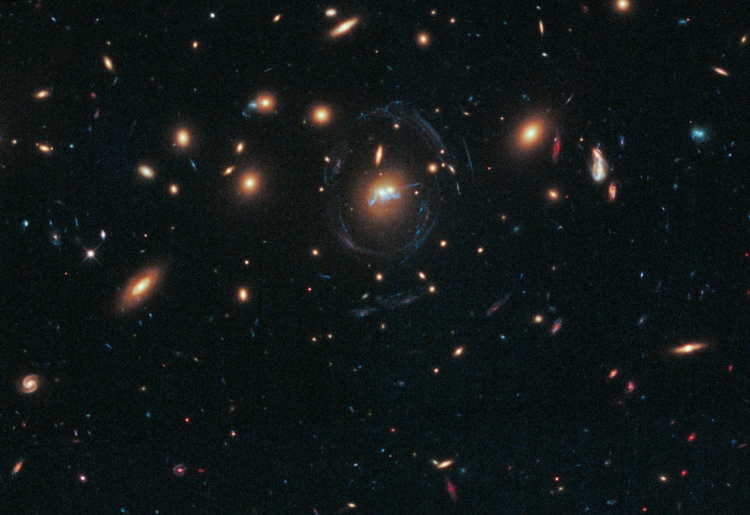
Plato and Aristotle in Raphael’s ‘The School of Athens’, fresco, 1509-11, Apostolic Palace, Vatican City
* * *
Russell wrote that philosophy lies between science and theology. Aristotle wrote in the Metaphysics that first philosophy is the science of theology. I would like to make a couple of points before discussing Aristotle’s theology in that book and some points regarding Aristotle on contemplation.
It has been argued that the central doctrine of the Metaphysics is that the foundation of the world is natural ‘substance’ and not some separate and ideal entity, whether mathematical or other. For Aristotle, the subject of his book was those things that lie beyond process and change, the science of things transcending what is physical or natural. In my view, the central doctrine of the Metaphysics is that the foundation of the world is an eternal substance beyond process and change.
Nothing lies beyond process and change.
Nothing transcends what is physical and natural.
Lenin wrote that the scholastics took all that was dead in Aristotle and left what was questioning, what was living. An example of brilliance in Aristotle’s thought is the following quotation:
‘It is…impossible that movement should either come-to-be or be destroyed. It must always have been in existence, and the same can be said for time itself, since it is not even possible for there to be an earlier and a later if time does not exist. Movement, then, is also continuous in the way in which time is – indeed time is either identical to movement or is some affection of it. (There is, however, only one continuous movement, namely spatial movement, and of this only circular rotation.)’
Yet he denied the heart of dialectics and the engine of movement: ‘it is not possible for the same thing both to be and not to be at one and the same time, or indeed harbour any other such pair of contraries.’ Again, for Aristotle, nothing that has matter can be eternal.
More than referring to what can be seen, heard, etc., ‘matter’ indicates what exists independently of us, of our consciousness and ability to think – and of which we are its products. Matter, space, time and motion are inseparable.
Aristotle’s theology and the role that contemplation plays in relation to it is at both the core and the pinnacle of his Metaphysics – they cannot be passed off while we get into the meat of the text. He wrote that divinity is ‘the primary and fundamental principle.’ God or the Unmoved Mover, the ‘eternal actual substance’, not subject to process of any kind, is the object of desire and the focus of memory for the world and everything in it. As such the Unmoved Mover is the final cause of the world. Because of it there is motion in the world.
It is essential to understand the most significant place that theology plays in philosophy in general. Aristotle did not understand its place in Plato’s philosophy. He wrote, amongst his numerous criticisms of Plato in the Metaphysics: ‘it was perceptible particulars that the Forms were postulated to explain.’
I disagree – the Forms were postulated to justify Plato’s theology. In his criticism of the Forms, Aristotle gave the appearance of having been blind to their theological purpose – he has analysed them ‘logically’ – the very criticism he made of Plato, that he thought ‘logically’. This also points to the weakness of his metaphysics – that they, like Plato’s Forms, are built on contemplative reason, reason divorced from testing in practice.
Aristotle believed that contemplative philosophy brings a philosopher as close as possible to a divine state – that philosophy nurtures the divine fragment in us. He wrote that ‘contemplative study is to be chosen above all other sciences, but it is this First Science of Theology that we must prefer to all other kinds even of contemplation.’ He drew on his ethical theory to argue that the highest form of life is contemplative thought. The prime mover enjoys that life, necessarily.
For Aristotle, God is permanently engaged in the contemplation of contemplation (noesis noeseos), in thinking about thinking. In activating thought, God activates life (compare this with John 1:1 ‘In the beginning was the word [my emphasis], and the word was with God and the Word was God.’).
Contemplation (matter reflecting on matter, objective reality reflecting on itself) and its determinations, divorced from testing in practice, is the greatest, most pernicious failure of philosophy.
Its etymology, appropriately, traces to a place apart, for the observation of auguries – con-templum.
It has always played into dominant ideologies, been used by the ideologues of dominant classes to guide away from the world, as their masters exploit it.
As Lenin wrote: ‘from living perception to abstract thought and from this to practice, such is the dialectical path of the cognition of truth, of the cognition of objective reality.’









































